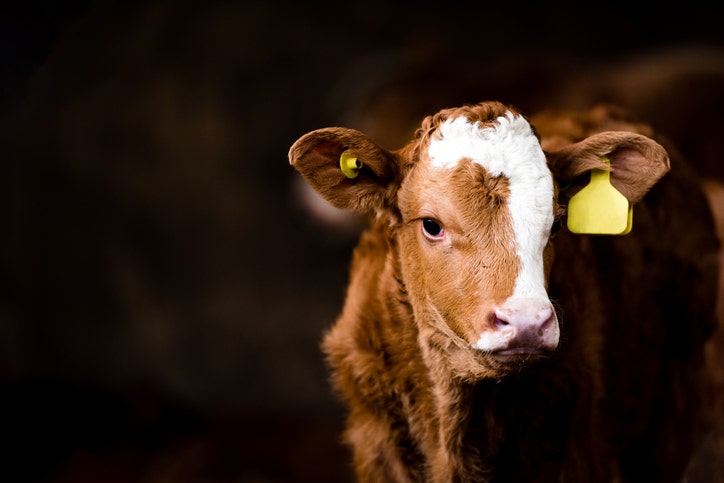
CVS Farm practices offer UK farmers subsidised antibody testing to assess colostrum management
Fifteen CVS Farm vet practices in the UK will continue to offer their farmers a subsidised Bovine Antibody test throughout 2025 to assess the effectiveness of farm colostrum management.
Associated data will be collected by CVS Farm from farms across Wales, Scotland, Northern Ireland and England in order to investigate the prevalence of failure of passive transfer (FPT) in neonatal beef suckler calves under seven days of age, and the effects of associated risk factors.
Calves are born without any antibodies, the key to protection from disease. They must receive enough good quality colostrum within the first few hours of life to supply them with these vital antibodies. This is called passive transfer (PT). It is typically thought that dairy calves are most at risk of failure of PT. However, on a third of British beef suckler herds, at least 20% of calves fail to receive adequate colostral antibodies.
There are proven benefits to measuring the success of PT. Farms that regularly monitor are shown to have much better success rates. Correct colostrum delivery has proven long-term impacts on production. It is not just the initial few months of a calf’s life where it is key. Calves moved into rearing units with good PT scores grew 10% faster and used 46% less antibiotic over their lifetime. It can also be used to identify calves that are likely to need more nutritional support.
Blood samples will be taken from up to 15 calves under 7 days of age from each farm, and then analysed on farm or in the practice lab to give a quantitative measurement of IgG antibody levels. An investigation into the cause of the failure of passive transfer (FPT) will then be run for each individual farm, looking at multifactorial causes including nutrition, feed space, housing conditions and dystocia. Farm vets will also discuss the results of each farm’s tests with an aim to improve the level of PT in future calving seasons.
For farmers producing and rearing calves, the routine monitoring of IgG status will identify higher risk individuals and enable management changes. This will reduce the risk and incidence of neonatal disease, reduce time and labour treating sick calves, reduce antibiotic treatments, reduce disease related lifelong productivity impacts, and support achievement of productivity targets.
Steven Carragher, Quality Improvement Farm Lead for CVS and Senior Veterinary Surgeon at Alnorthumbria Vets, said:
CVS Farm is taking a ‘One Health’ approach to clinical improvement and developing practical projects to address related challenges, such as antimicrobial resistance and improving animal welfare. Every practice has appointed a vet to be a Practice Quality Improvement Lead, who collaboratively; brainstorms how to overcome challenges, develops ideas for clinical improvement, identifies the resources and technology needed to implement each project and advocates for programme delivery within a practice’s team.
CVS Group operates across small animal, farm animal, equine and laboratories, with over 500 veterinary practices and referral centres in the UK and Australia. In the last five years the company has invested nearly £80 million in its sites, facilities and equipment, in addition to industry leading training and support, to give the best possible care to animals.